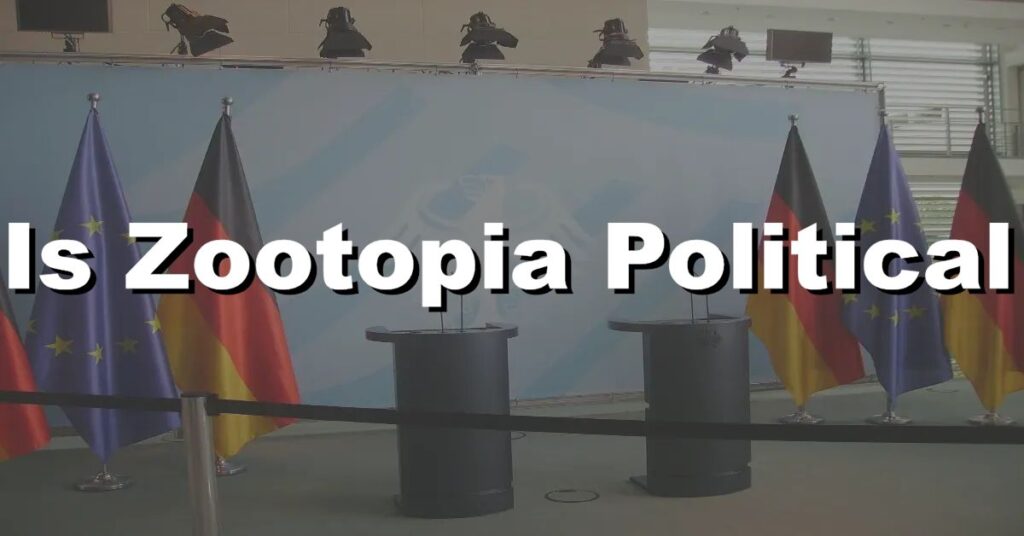Zootopia is a popular animated film that explores themes of prejudice, discrimination, and social justice. While it is marketed as a family-friendly movie, it has also been praised for its subtle political messaging. In this blog post, we will examine the political undertones of Zootopia and discuss what it can teach us about politics and society.
Analyzing the Political Messages in Zootopia
Zootopia, a widely acclaimed animated film, contains several thought-provoking political messages. The movie explores themes such as prejudice, discrimination, and the abuse of power in a society of anthropomorphic animals. By using animal characters, Zootopia allegorically addresses real-world issues, making it accessible to audiences of all ages.
The film delves into the complexities of systemic inequality and challenges the notion of “predator versus prey” stereotypes. Zootopia emphasizes the importance of inclusivity, understanding, and breaking down barriers to create a harmonious society.
Through its engaging storytelling, Zootopia sparks conversations about social and political dynamics, encouraging viewers to reflect on their own biases and consider the impact of prejudice in their communities.
How Zootopia Challenges Stereotypes and Promotes Diversity
Zootopia is celebrated for its ability to challenge stereotypes and promote diversity. The film portrays a diverse array of animal characters coexisting in a vibrant city, each with their unique traits, talents, and ambitions. By showcasing the potential for collaboration and harmony among different species, Zootopia challenges the idea that certain groups are inherently superior or inferior.
It dismantles stereotypes associated with specific animals and encourages viewers to see beyond surface-level judgments. Zootopia highlights the importance of embracing diversity and recognizing the value of inclusivity in creating a thriving and egalitarian society.
The film serves as a powerful reminder that individuals should not be judged based on preconceived notions but rather celebrated for their individual strengths and contributions.
Zootopia and the Politics of Prejudice
Zootopia delves into the politics of prejudice and the impact it has on society. The film portrays a world where predators and prey coexist, but tensions arise due to deep-rooted biases and discriminatory practices.
Zootopia addresses the ways in which prejudice can divide communities and perpetuate injustice. It sheds light on the dangers of stereotyping and the harmful consequences it can have on individuals and social cohesion. By exploring themes of discrimination and systemic bias, Zootopia prompts viewers to critically examine their own biases and reflect on the broader implications of prejudice in the real world.
The film encourages conversations about social justice, equality, and the need for collective efforts to combat prejudice and foster inclusivity.
The Importance of Children’s Media in Addressing Political Issues
Children’s media, such as Zootopia, plays a crucial role in addressing political issues and shaping the perspectives of younger generations. Films, TV shows, and books geared towards children have the potential to introduce complex topics in a digestible manner and promote critical thinking.
Through relatable characters and engaging narratives, children’s media can help young viewers develop an awareness of social and political dynamics. By addressing topics like prejudice, diversity, and power, media like Zootopia encourages children to think critically, question societal norms, and cultivate empathy.
Children’s media has a unique opportunity to lay the foundation for future generations’ understanding of political issues, inspiring them to become active participants in shaping a more inclusive and just society.
The Evolution of Political Themes in Animated Films
Animated films have witnessed a notable evolution in the portrayal of political themes over the years. In earlier animated films, political elements were often simplified or relegated to the background. However, contemporary animated films like Zootopia have embraced more complex political narratives.
These films engage with a range of issues, including prejudice, social justice, environmentalism, and governance. By weaving political themes into their stories, animated films provide opportunities for children and adults alike to engage with and discuss these topics.
The evolution of political themes in animated films reflects the recognition that media can be a powerful tool for exploring and understanding societal challenges. As animated films continue to evolve, we can anticipate even more nuanced and impactful political storytelling that resonates with audiences of all ages.
Conclusion
In conclusion, while the movie has political themes and undertones, it is ultimately a children’s movie and is meant to be enjoyed as such.

